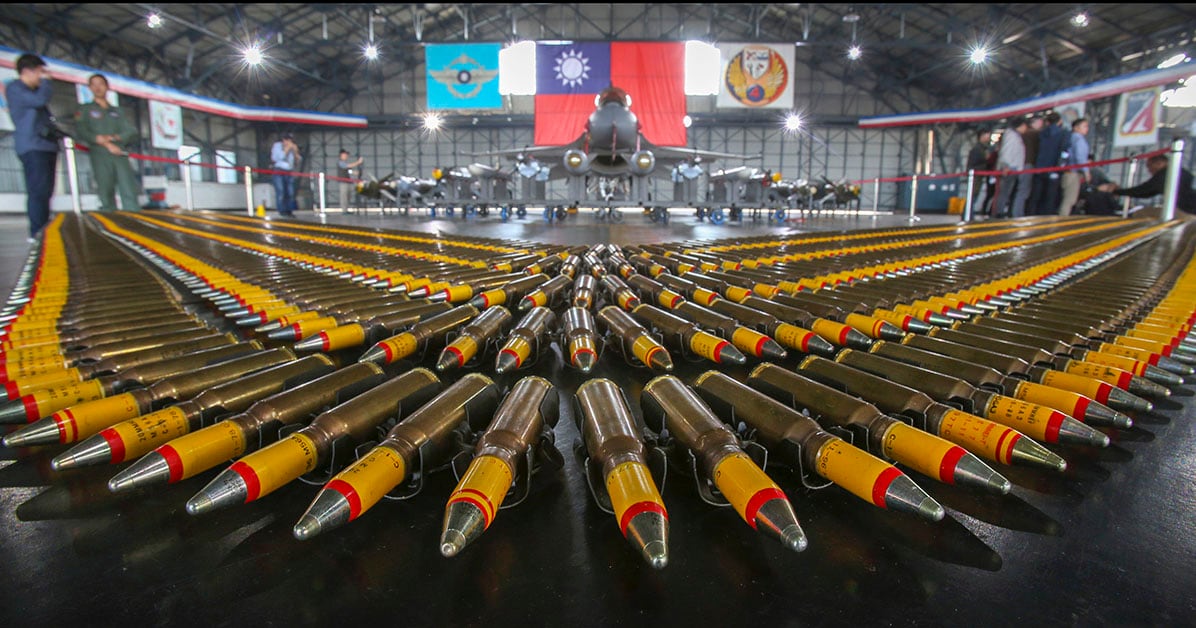Recently, the Biden administration has come under criticism for its use of a law which, until its application during the COVID-19 pandemic, was relatively unknown. The Defense Production Act has been on the books since 1950, but only in the past few years has its potential value been so broadly recognized, with both parties championing its use from the White House and Congress. However, recent claims that the president is abusing the DPA’s power in pursuit of partisan objectives are threatening the viability of this unique tool for rebuilding a robust, resilient and globally competitive American industrial base.
Sen. Patrick Toomey, R-Pa., recently noted that Congress may need to curtail the act in light of perceived misuse by the White House. Other nonpublic sources have cited more specific restrictions considered by Congress, which would broadly apply to the DPA, even in cases where its application isn’t in question.
This wouldn’t be the first time a perceived overreach resulted in broad-based restrictions that went beyond the offending action. And it wouldn’t be the first time it happened to the DPA. In 2014, Congress amended the DPA with several restrictions, following a changeover in control of Congress and in response to congressional frustration with the Obama administration’s use of the act to support a clean energy initiative focused on biofuels.
Instead of limiting how the DPA could be applied, they primarily made it more difficult to use, such as eliminating the ability to delegate signature authority below the president. The result was an increase in bureaucracy and a corresponding decrease in effectiveness.
Going forward, we encourage all parties to avoid any changes that impede the effective use of the DPA. To this end, we also strongly recommend an open dialogue between Congress and the Pentagon to understand and address current restrictions impeding the effective application of the DPA, and to ensure any future changes do not undermine the Defense Department’s ability to effectively and rapidly address legitimate defense requirements.
A legitimate debate may arise over the use of the DPA beyond traditional defense needs. As that debate unfolds, Congress may find that DPA authorities need to be expanded at the DoD while applying further oversight and restrictions at civilian agencies that are not as experienced with the use of this authority.
Over the past 70 years during which the DPA has been in effect, it has been reauthorized 53 times through bipartisan efforts. But at no time has it been more important than today, as we seek to give American industry an opportunity to rebuild and compete globally against China. This importance has been affirmed by the White House and Congress — through bipartisan calls to increase its strategic use in rebuilding domestic supply chains, combined with substantial funding increases.
Both the Trump administration, through executive order 13806, and the Biden administration, through executive order 14017, have directed an all-of-government approach to assessing vulnerabilities in — and strengthening the resilience of — critical supply chains. The reports resulting from these executive orders recognize the broad and dangerous reliance on China that is a fundamental characteristic across several industries critical to national defense, including microelectronics, batteries, and castings and forgings, among others.
This dependence on our pacing competitor has arisen due to a combination of U.S. inaction and aggressive, unfair and even illegal Chinese economic practices. The February 2022 Defense Department report on critical supply chains specifically underscores the need to leverage the full scope of the American economy to support national defense, such as aggregating demand across industries and limiting the use of military-unique requirements in order to better leverage commercial market innovations.
RELATED

The DPA is an unmatched tool in addressing these trends, sitting at the intersection of private industry and federal investment, with unique authorities that enable the government to strength American industry to better assure our economic and broader national security. Several DPA authorities can help counter Chinese government intervention in international markets, which has created an unfair advantage for Chinese companies.
Application of the DPA can also establish a more fair environment for U.S. industry to demonstrate and deliver the proven power of the free market. In this era of great power competition, the DPA is a unique and essential tool to ensure the competitiveness of U.S. industry in the global market, and to strengthen American economic security while reestablishing military security.
The DPA has consistently been upheld as a common ground for both Democrats and Republicans, and it aligns with bipartisan initiatives such as the House Armed Services Committee’s critical supply chain task force and the Bipartisan Infrastructure Law. Working together, we can effectively and appropriately use the DPA as a strategic asset for shared American values and national interests.
For those interested in understanding the DPA, click here for a report by the Congressional Research Service, which provides a useful summary of the law’s history and current authorities.
Bill Greenwalt is a nonresident senior fellow at the American Enterprise Institute, a former senior staffer on the Senate Armed Services Committee and a former deputy undersecretary of defense for industrial policy. Jerry McGinn is the executive director of the Center for Government Contracting at George Mason University’s School of Business. He is a former senior Pentagon acquisition official whose responsibilities involved the DPA. Christopher Zember has served as both a government and corporate executive, and was previously director of the Center for Technology and National Security Policy at the National Defense University. This commentary does not necessarily reflect the views of current or former employers of the authors.








